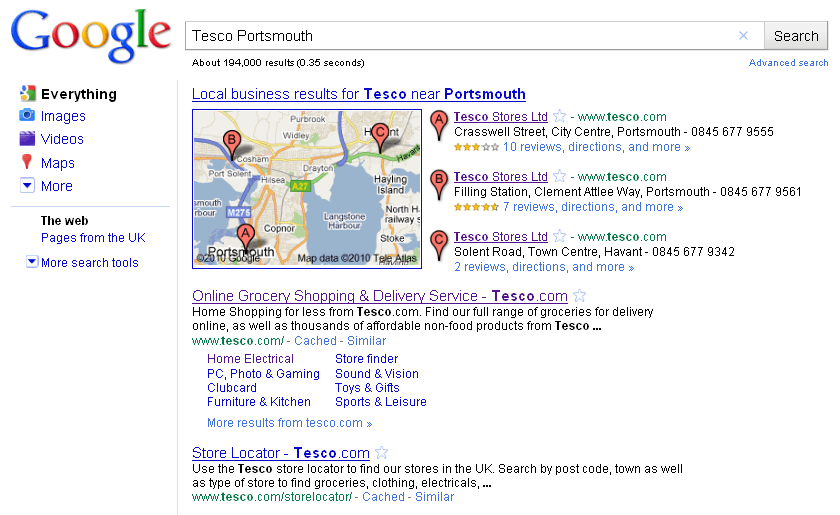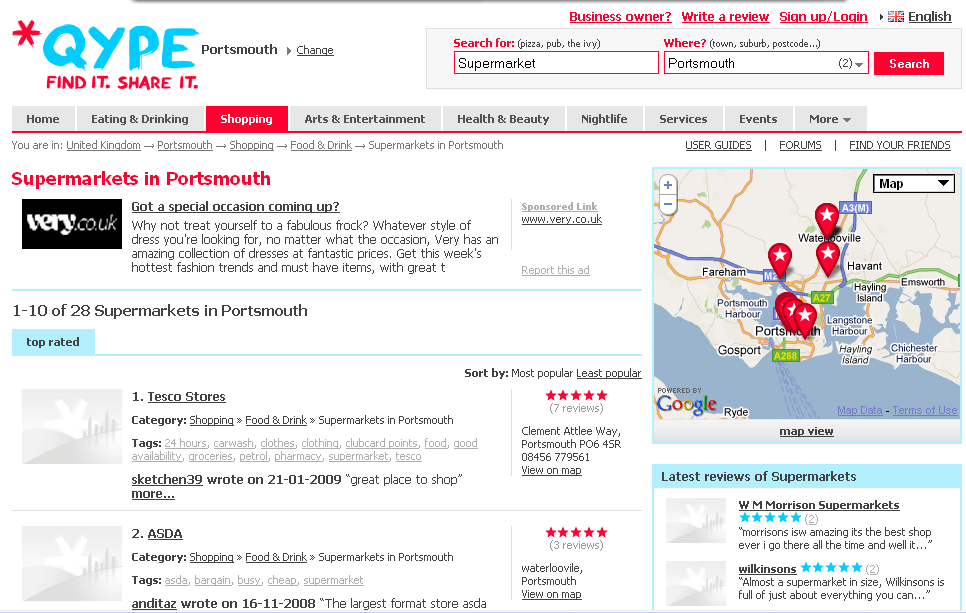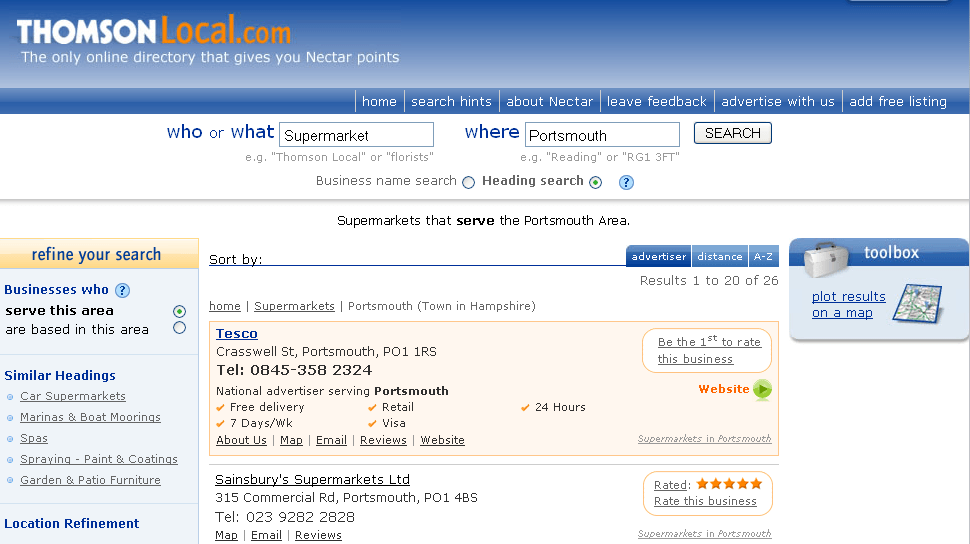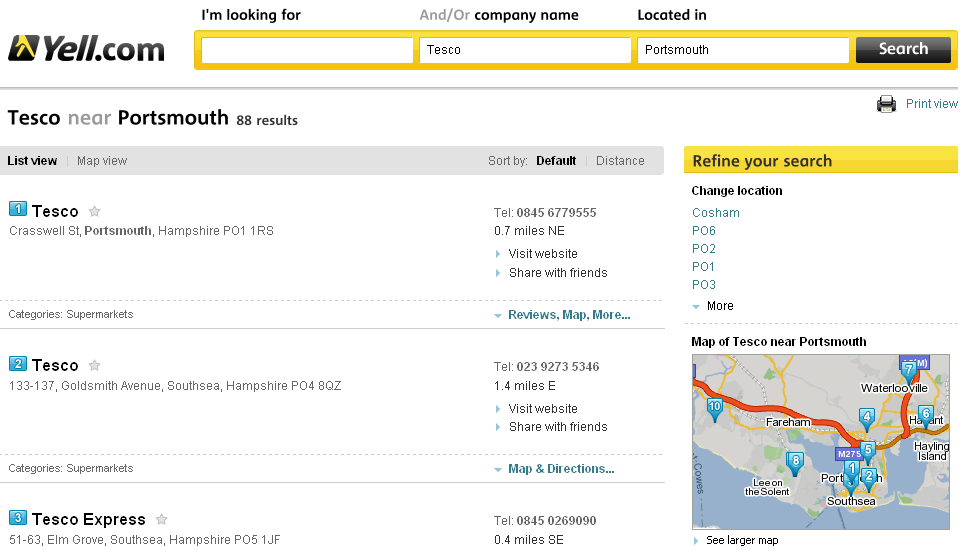If you’ve got a business spread over multiple locations and want to get a local search presence in each, what do you need to be doing?
It’s a fairly common problem. A business develops a website and then wants to optimise it for each individual location where it has a physical store or premises. How exactly do you go about doing that?
To appear in local search results you need to be able to profile your local credentials. A search engine can’t simply guess where you are. Whilst your site might promote the primary address, those of your headquarters or other registered address, it won’t necessarily be optimised for your subsidiary locations – which of course are no less important.
Unless you’re a highly established brand with a hugely authoritative site, you’ll struggle to rank for your keywords and locations naturally. Whilst you could just list your various addresses and provide the search engines with a rough clue, if you’re determined to be top of the rankings you’ll need to do more.
Getting Local Search Engine and Directory Listings
First of all you need to make sure you have the basics covered first. If you have properties spread across multiple locations, make sure you sign them up to the major directories and register the addresses with the search engines – using Google Local etc.
By signing up for Qype, Yell (Yellow Pages) and Thompson Local you’ll provide the search engines with definitive evidence of each location. These are strong sites offering authoritative links, so your SEO will benefit and so too should your presence within local search phrases. Of course registering them with the search engines themselves is the cherry on top, allowing you to feature within the local map results.
Even the big boys are doing this. See below for examples of how Tesco have used Google Local as well as major directories to create a strong presence in Portsmouth. Their addresses appear prominently for a variety of search terms in each of the directories and Google for various related terms, including “Portsmouth supermarket”.




Due to the strength of the brand name and site, Tesco have the luxury of simply pointing each individual location link back to their homepage. You however might not be so fortunate.
Developing Unique Location-Specific Pages
If you’re in a competitive field and haven’t fully optimised for one of your secondary locations, you could struggle to gain visibility. If your rivals have already been hard at work building their local relevance, then a few directories alone might not be enough to outrank them.
What you really need to do is fight fire with fire. If competitors are targeting your keywords and locations on a particular page on their site, then you need to do the same. Create unique pages for each location, write individual descriptions and provide useful information that can be used by visitors and search engines.
A new landing page gives you the opportunity to target fresh keywords and gain rankings. Where multiple locations are involved, it provides the perfect platform to get your business seen for local search terms for each premises. Optimise the content to gain relevance, then update your directory and search engine listings to build strength.
Of course this could be a very time consuming process if you have a large site. However, the end results should more than justify this investment. With greater prominence for local search terms you stand to attract a far more targeted audience and should see enquiries increase as a consequence.
Don’t forget your internal navigation either. Make sure that if you create new pages that you also update your sitemap with embedded text links and also include references throughout your site where applicable. This will all work to help pass around more link juice and improve relevance.






Leave a Reply